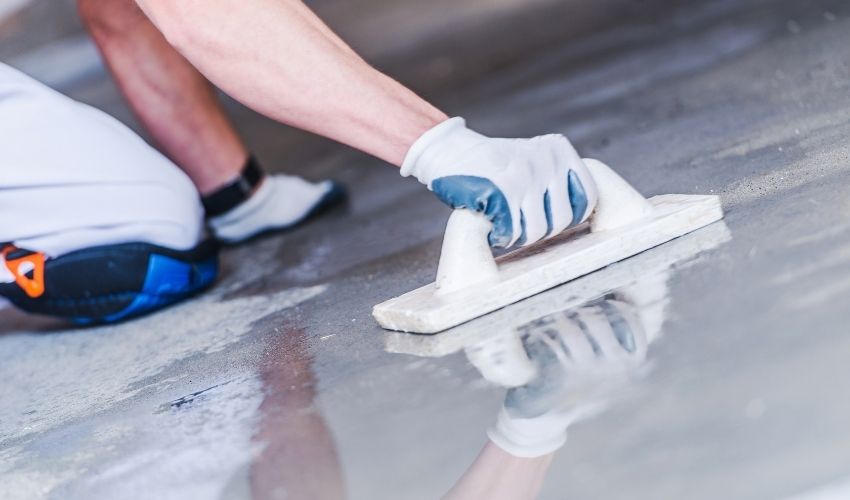
Food distribution companies mainly comprise restaurants, followed by on-site food services like schools, cafeterias, and military and retail food services in supermarkets and convenience stores. Imagining the foot traffic and food transfer that happens here every day, it is not surprising that their floors endure severe wear and tear every day. The extreme temperature fluctuations, harsh cleaning solutions, grease, and constant moisture contribute to the flooring’s premature wear, tear, and cracking. The constant sanitation inspections lead to the added stress of ensuring that your floors are healthy and safe for your employees and customers. While regular and even professional cleaning does help, it is always better to invest in the best commercial concrete floors for food distribution companies. The right flooring increases the safety and health of your guests and employees.
With so many different types of flooring available, making the right choice can be difficult. Here is a list of features to look out for to give you an idea of the flooring you need.
6 Features of perfect commercial concrete flooring

1. Moisture
Moisture is inevitable in places like restaurants, with the humidity of cleaning, cooking, washing, and spills. It leads to damp floors, a safety hazard that can cause havoc, especially if improperly installed.
2. Hygiene
Hygiene is essential for preparing meals and storing food. With restaurants being a practically breeding ground for bacteria and pathogens, it is necessary to maintain a hygienic and code-compliant premise.
And proper hygiene in food distribution companies comprises proper ventilation, staff hygiene, sanitized equipment and cookware, and the right flooring.
The right flooring helps maintain hygiene, especially when properly installed.
3. Safety
Each food distribution company has its safety requirements for its flooring. And of the lot, moisture and pathogen growth contribute the most towards slip and fall hazards.
Slip and skid-resistance floors help here as their specialized components and aggregates like epoxy, glass, and sand create rough edges which minimize sliding.
4. Chemicals
Commercial concrete floors should be chemical resistant. The different cleaners used for cleaning ovens, floors, dishes, and windows contain harsh chemicals, which may spill and damage the floor.
There is also the chance of commercial degreasers, detergents, and chemicals used to clean greasy kitchen equipment spilling on the floor. Besides, carts and foot traffic can create surface abrasions while passing over spilled granular ingredients like sugar and spices.
The continuous exposure to these chemicals leads to cracks and blistering, increasing the need for chemical-resistant flooring.
5. Thermal resistance
Food distribution company floors experience massive temperature fluctuations between hot dining areas and cold storage areas. You also have hot water cleaning and cooking areas emitting heat and refrigeration equipment expelling extreme cold.
These extreme temperature variations lead to the expansion and contraction of the flooring substrate and coatings.
The consequent gaps lead to open floor areas that welcome contaminants and create safety hazards. The perfect flooring for these conditions is something thermal-resistant, which keeps the concrete and flooring bonded.
6. Aesthetics
Last but not least, your flooring is what creates the first visually aesthetic and lasting impression on your customers. Attractive and decorative flooring will enhance your customer experience as different colors and aesthetics affect a person’s thoughts and decisions.
Best commercial concrete flooring options

Based on the criteria mentioned above, the good news is that you have quite a few available flooring options to choose from.
They range from epoxy floors to polyurethane flooring systems to MMA floorings. These flooring systems fit your requirements as they are durable, easy to install and maintain, aesthetically pleasing and safe, and hygienic.
However, these floorings offer their benefits only if properly installed.
For example, the concrete must be cleaned and cracks patched with urethane before installing your epoxy flooring. An installation without prepping only leads to premature epoxy floor peeling and chipping.
So it is equally crucial that you professionally install your selected commercial concrete floors for your food distribution companies.
Do not worry if you are still confused about the suitable flooring for your establishment. Your flooring expert will help you select and professionally install the rightly designed flooring that blends well with your vision, color scheme, and design.







Leave A Comment